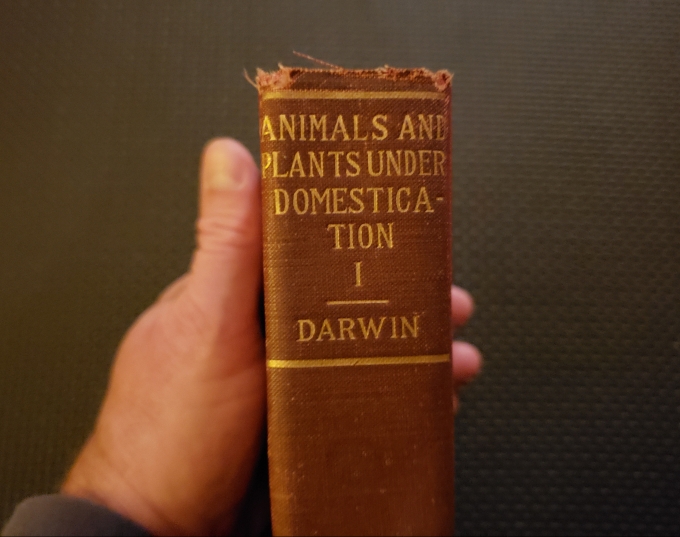
(Darwin 1897, 233-234) said: “Until man selects birds differing in the relative length of the wing-feathers or toes (and so on), no sensible change in these parts should be expected. Nor could man do anything unless those parts happened to vary under domestication: I do not positively assert that this is the case…”.
On page 235, He (Darwin, 1897) continues: “The progress of selection almost inevitably leads to the neglect and ultimate extinction of the earlier and less improved forms, as well as many intermediate links in each long line of descent.”
It truly does appear that by his language, Darwin is fueling his “descent with modification” theory strongly based upon his observances in artificial selection (man’s husbandry) with pigeons.
When looking at the possible outcomes of a Punnett square, even with only one trait involved, sometimes there is 100% chance of a certain phenotype (outward appearance) manifesting and sometimes there is a 25% chance. Without bringing epigenetics into the picture, there is an element of DNA recombination between a sperm and egg that is random. Random and not “selected.” With that being said, I believe epigenetics is showing how certain traits (after their own kind/within a species) can be selected by nature, due to “external locks and unlocks” placed on the genome.
In pop culture, we have seen plenty of pictures of dramatic jumps from one type of animal to another type of animal, suggesting macroevolution. I find it interesting that Darwin said in the first entry I quoted that man’s artificial selection could not in effect, be performed on something (a trait) that was not already there. “Nor could man do anything unless those parts happened to vary under domestication (Darwin 1897, 233-234).” Darwin’s words came in light of what he observed in artificial selection with intelligent input from man, resulting in creatures “after their own kind.”
My thinking, which is not original, is that Darwin at least somewhat based his theory of evolution upon what he witnessed in mankind’s artificial selection within certain lines of animals (and plants), in this case pigeons. Many of the “changes” Darwin witnessed, after their own kind, required intelligent input and not random action.
Bibliography:
Darwin, Charles. The variation of animals and plants under domestication, Volume I. New York: D. Appleton and Company, 1897.
Resources:



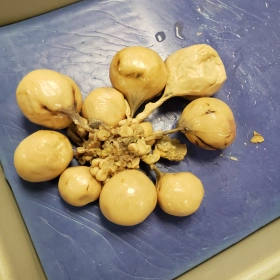

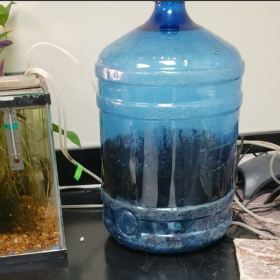
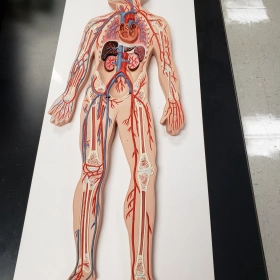
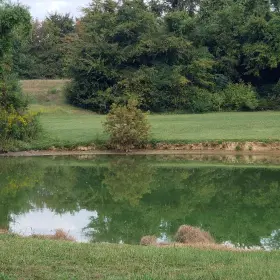

Thanks for sharing!
I do not see how the intelligent use of a mostly random process is a denial of the theory of evolution.
A word (or too many) on selection of genes: what Darwin said was true to his time and for what he knew, but humans can select for/add genes that were not present previously. Genetic manipulation is commonly done in the lab to address research questions. However, most, if not all, of these genes/protein products are deviations from the wild-type gene. I cannot think of a synthetic protein made by humans that was not informed by something already present. This lends credence to Darwin’s thought that humans cannot select for something not in nature.
Conversely, things can happen that are unnatural though, at the hands of humans. Such as an AIDs resistance gene being inserted into offspring from parents that do not harbor said gene/allele.
Now, what does all of this mean in the context of the blog? It doesn’t devalue the theory of evolution as much to say that intelligent input mucks up the process as observed by the viewer, keeping them from seeing the theory play out naturally. Then someone may argue that you cannot see evolution naturally, in which case it is useful to point to all the human manipulations to suggest that the principles and the process are there.
Again, thanks for sharing !
LikeLike
Thoughtful!…and detailed. Thanks, Charles!
LikeLike
It seems to me Darwin based his evolution theory on observations of research that “ man” tampered with also.
LikeLike
His friend Alfred Russel Wallace said this was one of the complaints against the idea of “natural selection” as the driving force of “descent with modification.” Many of Darwin’s observations were centered around the changes in domesticated animals and plants resulting from the intelligent input of man.
LikeLike
Machines!
Watch “Transcription and Translation” on YouTube
LikeLike
Fascinating! Thought provoking! I’m not a scientific savvy person, however, I do consider myself to be a practical and realistic thinker. I wonder what Darwin would think about some Hollywood couples already choosing the sex of their children. More and more people are liking the idea of selecting which traits they will have, like blue eyes, for example. Another thought that I have is about the DNA itself. As a Christian, I believe that DNA comes from God. It belongs to Him. I’m disturbed that some humans try and manipulate “traits” and “play God.” Some species are already extinct because of man’s choices. I believe a rabbit should just simply be a rabbit (not some weird looking rabbit that has been genetically altered by man that can hop the whole length of a football field, I realize I am exaggerating) a fox just needs to be a fox, and so forth. I think adaptation should be natural and not forced. I think traits, genetics, and DNA are all gifts from God. Human greed also plays into special breeding and cross breeding. Some people just want to buy the yacht! Although it has nothing to do with domestication of flocks or species, selection, or random reproduction, consider what man did to the buffalos. God bless our planet, nation, and community, and may the powers that be make Holy Spirit led and sane moral decisions!
LikeLike
The spoken “Words” formed by A’s, T’s, G’s and T’s (the genetic code) and additionally U’s in the formation of RNA (micro machines) have many possibilities.
LikeLike